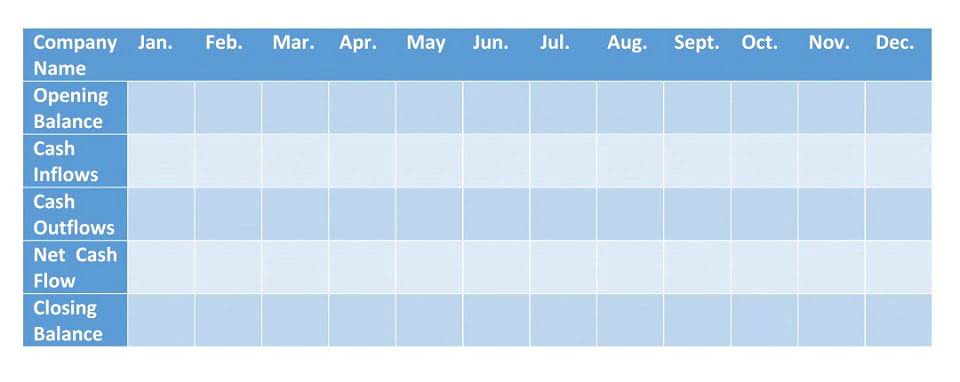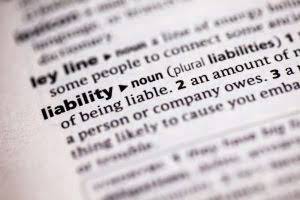Have you ever experienced the frustration of receiving an outstanding check due to insufficient funds? It can be quite a headache, especially when you were counting on that money. Understanding the reasons behind these checks can help shed some light on this issue. When a check is written, it serves as a promise of payment from the issuer to the recipient.
- In this scenario, the check is considered outstanding as the funds have been deducted from your account but have not been received by your friend.
- Overall, the consequences of not managing outstanding checks can be detrimental to the financial well-being of a business.
- Outstanding checks are typically recorded in a company’s cash disbursement journal or check register.
- Checks that remain outstanding for long periods of time cannot be cashed as they become void.
- It is crucial for individuals to manage their finances responsibly, keep track of their account balances, and promptly address any outstanding checks to avoid these potential .
Consequences of Not Managing Outstanding Checks
Some banks may cash the stale check for a fee or under certain conditions. Outstanding receivables refer to all the money that customers owe a business for goods or services that have been delivered but not yet paid for. This includes outstanding checks both current receivables (invoices that are due within a normal payment period, such as 30 days) and past due receivables (invoices that have exceeded their payment terms). Chasing customers for payment can be a delicate and time-consuming process that can strain business relationships. Persistent late payments can damage trust and goodwill, leading to resentment and a breakdown in communication. While extending credit to customers can boost sales and foster business relationships, it also introduces the risk of outstanding receivables.
Advance Your Accounting and Bookkeeping Career
Before sending one, ask the payee to return the old check to eliminate the possibility of both checks being deposited, either intentionally or unintentionally. Businesses that mishandle these kinds of accounting situations are effectively in violation of the law. Check to see that the contact information is correct, as checks may go missing simply because of an incorrect mailing address. Outstanding checks aren’t necessarily inherently bad; however, there are some risks and downsides to have checks linger.
What is an accounts receivable aging report?
+ Plus, detailed guides to maximizing the value you get from your new US bank account. Insurance Accounting Below are two of the most common questions that we receive from people looking into what an outstanding check is. If you have further questions you would like answered, don’t hesitate to get in touch with us directly. Continuous accounts receivable, also known as chronic accounts receivable, refers to the inability of a…
- By maintaining a log of these conversations, individuals can refer back to it if needed and ensure that there is a clear and documented trail of their efforts to resolve the outstanding checks.
- Even if your bank agrees to honor the check, the issuer’s account may not have the necessary funds.
- Unfortunately, the issuing individual or business does not have any way to force a check to be deposited.
- When you pay someone by check, your payee must deposit or cash the check to collect the payment.
- Best practices for managing and clearing outstanding checks include regular bank statement reconciliation, promptly voiding or canceling unused checks, and maintaining proper record-keeping.
In fact, in most jurisdictions, an issued check will still be deposited by banks up to six months after the issue date. This is very different than most other instant payment methods, which include ACH transfers, wire transfers, and even cryptocurrency. You wrote three checks for $100 each, but only two people cashed their checks. Since the third $100 check was not cashed, it does not show up on your bank statement. Once the outstanding checks have been identified, individuals can take the necessary steps to resolve them. This may involve contacting the payee and arranging for an alternate form of payment, or it may require further communication with the bank to address any issues that may be causing the delay.
An outstanding check example could be a rent check you mailed to your landlord, but they have not deposited it yet. If a check is destroyed or never deposited, the money remains in the payer’s account. At first glance, this may seem like a positive turn of events for the payer. That said, it is possible for the issuing party to request a stop order from their bank, which would void the check that was issued. Additionally, banks typically charge fees when a assets = liabilities + equity stop order is issued, so before taking this action it’s important to confirm the related fees.
If a check remains unpaid for an extended period, the recipient may choose to take legal action to recover the funds. This can involve filing a lawsuit and seeking a judgment against the account holder. Depending on the jurisdiction, the account holder may be required to pay not only the original amount of the check but also additional legal fees and court costs. Legal action can be a time-consuming and expensive process, and it is best to avoid it by addressing outstanding checks promptly.
- Certified checks often won’t expire but may be subject to unclaimed property laws.
- Welcome to the world of accounting, where numbers rule and financial transactions must be meticulously tracked and recorded.
- Imagine a scenario where Sarah, a small business owner, writes a check for $800 to pay for monthly rent on her office space.
- An outstanding check is a check payment that has been recorded by the issuing entity, but which has not yet cleared its bank account as a deduction from its cash balance.
- It typically applies to accounts receivable (AR) and accounts payable (AP).
Importance of Managing Outstanding Amounts
Citibank.com provides information about and access to accounts and financial services provided by Citibank, N.A. It does not, and should not be construed as, an offer, invitation or solicitation of services to individuals outside of the United States. The longer an invoice remains unpaid, the higher the risk that it will eventually become uncollectible. This is known as bad debt, and it represents a direct loss of revenue for businesses.




